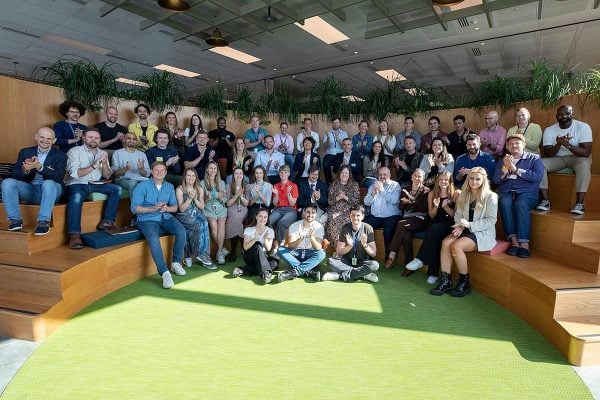While the government discusses making the UK a centre of excellence for AI, there are also other areas of technology that the UK could establish itself as a pioneer of. There is a desire from the UK public to repair and recycle their electronic items, but they frequently struggle, according to research.
James Rigg, CEO of Trojan Electronics believes that the UK can become a global electronic circularity powerhouse with the combined efforts of the public, government and electrical manufacturers. The joint efforts of all stakeholders will also help reach the 2035 Net Zero and sustainability goals and says that there are three main steps to achieving better electrical circularity and reducing e-waste:
- Encouraging the government to address a VAT reduction on electrical repairs,
- Encouraging new legislation for showing the repairability of electrical items,
- Training and supporting a future workforce in circularity and repairs.
We spoke to James to find out more and discuss the potential steps Government could make to foster the UK as a repairability and circularity country. In the video we discuss:
- 00:00 Introducing James Rigg and Trojan Electronics
- 03:45 Why 30% of purchase price or less is the sweet spot for repairs
- 07:22 The need repairer apprenticeships
- 09:14 Why almost everything is repairable, or can be used for parts recovery
- 11:44 The economic of repair costs vs profits
- 14:47 Three steps Government should take to foster a sustainable circular economy…
- 18:30 …and how it would create a whole new repair industry
- 23:02 The opportunity for the next Parliament in the run up to 2030
James went on to say: Currently, the UK is on par with Germany in regard to sustainable consumer behaviour. Over five domestic appliance categories, 24% of consumers said they repaired their appliance last time it broke down, versus 22% of German residents, and 32% of French residents. Extending the life of existing appliances and electronics is vital to achieving better circularity. Beneficially millions of consumers already take this approach.
Making repairs a cost-effective option is key to encouraging even more consumers to fix their broken electrical items. One way to achieve this is through government support. The government should strongly consider dropping VAT on electrical spares and the labour for repairing the item. This immediately reduces the cost of the repair by 20% and makes the prospect more viable to the consumer.
This is not wishful thinking either, Austria and France have both introduced repair voucher schemes which subsidies the cost of electrical repairs up to €200 per year. What’s more, the majority (54%) of UK residents support the introduction of green VAT measures. Research also suggests it could contribute up to 34,000 jobs to the circular repair economy.
The government could also consider introducing universal signposting of the repairability, sustainability and circular credentials of electrical goods. Inspiration can be taken from the simple traffic light system that is used on food and drink packaging to depict its nutritional value per saving and its performance against regular daily allowances.
Choosing three to four easy-to-understand measures of repairability and sustainability performance on the front of packaging would go some way to helping customers make more sustainable and circular decisions at the point of purchase. These measures could be the percentage of recyclable materials used, the ease of repair and the carbon footprint of producing the item.
While manufacturers could take the initiative and introduce this type of signposting themselves a government-imposed system would ensure that the implemented system was consistent across all electrical devices and easily understood by all consumers.
This would also have a knock-on impact on manufacturers of domestic appliances and handheld electronics who would be encouraged to design and make their products with repairability in mind. Using modular design principles means electrical goods can be repaired and refurbished rather than sent to landfills.
An additional piece of the circularity puzzle is training and developing the talent to fulfil jobs in the repair and refurbished electronics sector. Collectively more can be done to encourage people to study in this area and demonstrate it as a viable career path.
For example, Trojan Electronics is working with its local college to offer work experience in this area through placements in its workshop. However, these efforts need to be significantly scaled by the industry rather than one company. Can the UK’s further education organisations come together to create apprenticeships in this area?
Currently, there are courses on electrical training but nothing that focuses specifically on electrical appliance repairs and sustainability. As a collective industry, we should be encouraging and pioneering an apprenticeship in sustainability at the very least, if there are degrees in Taylor Swift.
Colleges and other education establishments need support in creating courses that will equip the engineers and circularity professionals needed to achieve 2035 sustainability goals. This initiative can be hooked into the government’s broader Net Zero sustainability goals – to reduce emissions by 68% by 2035.
Research into this area found that transforming the UK’s approach to repair, reuse, recycling and remanufacturing could create more than 450,000 jobs across the country by 2035, which would also have additional benefit to the broader UK economy.
So, if the government is to reach its wide-reaching 2035 Net Zero goals it is the government that needs to roll its sleeves up and take the lead on introducing new sustainability measures. The regulation changes will not only be beneficial to people’s pockets during the cost of living crisis but also create thousands of jobs and be kinder to the planet.








